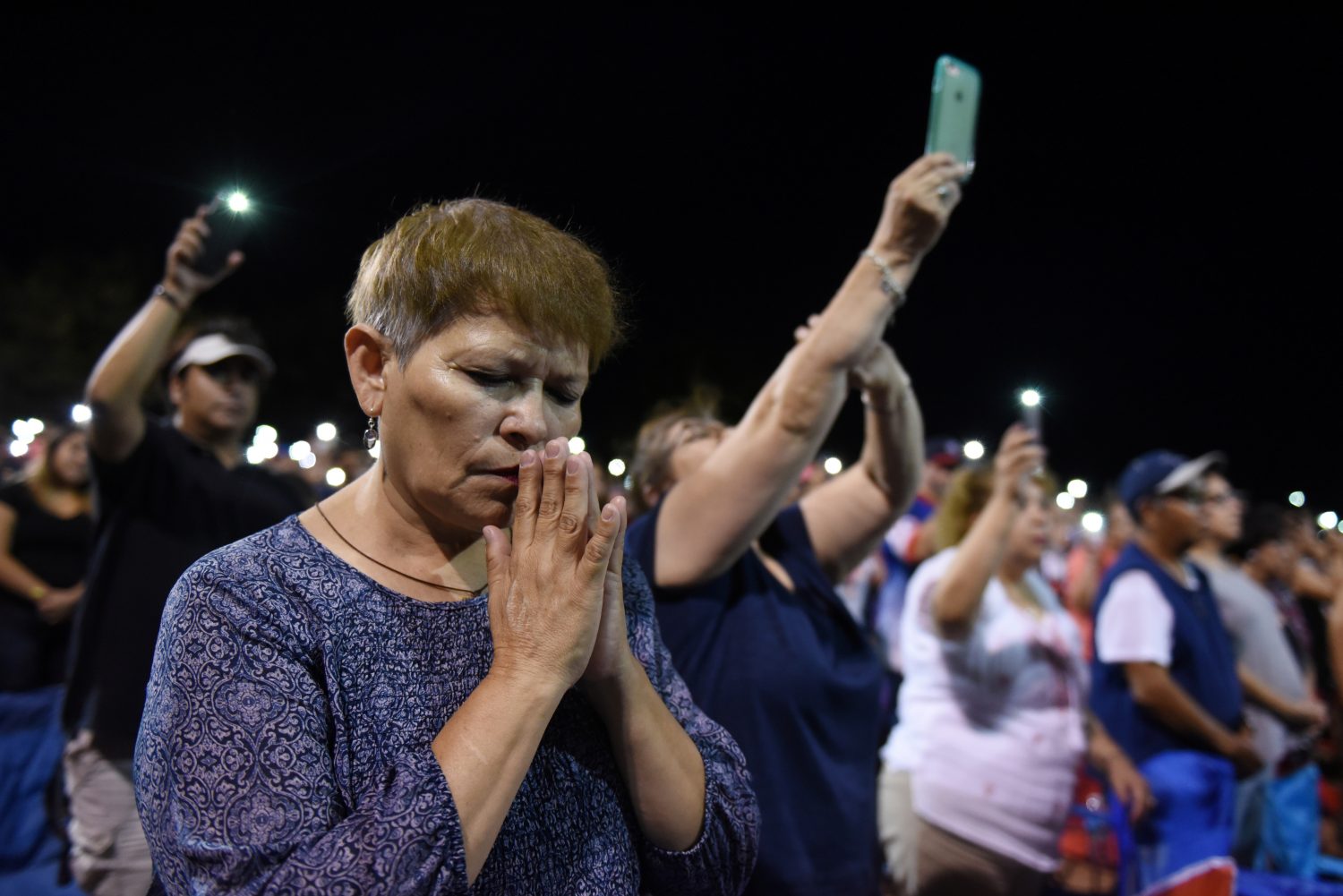
By Julio-Cesar Chavez
EL PASO, Texas (Reuters) – A single capital murder charge was filed on Sunday against the man accused of killing 20 people and wounding more than two dozen others at a Walmart store in El Paso, mass shooting authorities are viewing as a case of domestic terrorism.
Texas Governor Greg Abbott said Saturday’s rampage in the heavily Hispanic city appeared to be a hate crime. Police cited an anti-immigrant screed posted online shortly before the shooting, which they attributed to the suspect, Patrick Crusius, as evidence that the bloodshed was racially motivated.
It was the second of three separate public shooting sprees carried out in the United States in the span of a week, an unusually dense cluster of massacres that prompted fresh alarm in a country accustomed to reports of young men shooting down strangers.
The County of El Paso’s state court website lists a single charge of capital murder against Crusius, a 21-year-old white man from Allen, Texas.
His grandparents, with whom Crusius had recently been living, said they were devastated by the attack.
“He lived with us in our house in Allen, Texas, while he attended Collin College,” the statement said, read aloud by a family friend to reporters outside the home on Sunday. “He moved out of our house six weeks ago, and has spent a few nights here while we were out of town.”
The single charge is likely a legal place holder to keep Crusius in custody until further charges can be filed against him for each of the dead and the wounded.
It was unclear if Crusius has a lawyer or when a bond hearing or other court appearances will occur.
A state prosecutor said prosecutors will seek the death penalty against Crusius if he is found guilty.
The Federal Bureau of Investigation said in a statement on Sunday the attack “underscores the continued threat posed by domestic violent extremists and perpetrators of hate crimes.”
The agency said it remains concerned that more U.S.-based extremists could become inspired by these and previous high-profile attacks to engage in similar acts of violence.
The U.S. attorney for the western district of Texas, John Bash, said federal authorities were treating the El Paso massacre as a case of domestic terrorism.
“And we’re going to do what we do to terrorists in this country, which is to deliver swift and certain justice,” he told a news conference on Sunday. He said the attack appeared “to be designed to intimidate a civilian population, to say the least.”
FBI Director Christopher Wray told a congressional panel on July 23 that the bureau has recorded about 100 arrests of domestic terrorism suspects in the preceding nine months and that most investigations of that kind involve some form of white supremacy.
BACK-TO-BACK SHOOTINGS
The Texas rampage was followed just 13 hours later by another mass shooting, and came a week after a man shot dead three people at a California garlic festival before he was killed by police.
In Dayton, Ohio a gunman in body armor and a mask killed nine people in less than a minute and wounded 27 others in the city’s downtown historic district before he was shot dead by police.
Democratic candidates for next year’s presidential election called on Sunday for stricter gun laws and accused President Donald Trump of stoking racial tensions.
Trump has frequently derided many asylum seekers and other immigrants coming across the U.S. southern border as liars and criminals. At a political rally he held in May, after asking the crowd what could be done about immigrants coming in illegally, Trump smiled and joked after someone in the crowd yelled back: “Shoot them!”
Responding to the shootings, Trump called on lawmakers to pass new background checks laws for buying guns, and suggested any such legislation might also include greater restrictions on immigration.
“We must have something good, if not GREAT, come out of these two tragic events!” he wrote on Twitter on Monday morning ahead of planned remarks on the subject. On Sunday, he attributed the shootings to what he called the “mental illness” of the killers.
SIGNS OF HATE
El Paso Police Chief Greg Allen said the suspect was cooperating with investigators.
“He basically didn’t hold anything back,” Allen said at Sunday’s news conference but declined to elaborate.
Police said the suspect opened fire with a rifle on shoppers, many of them bargain-hunting for back-to-school supplies, then surrendered to officers who confronted him outside the store.
A police spokesman said on Sunday that the names of the victims would be released only when relatives had been informed, and he said he had no estimate for how long that would take.
Crusius comes from Allen, Texas, a Dallas suburb some 650 miles (1,046 km) east of El Paso, which lies along the Rio Grande across the U.S.-Mexico border from Ciudad Juarez.
A four-page statement posted on 8chan, an online message board often used by extremists, and believed to have been written by the suspect, called the Walmart attack “a response to the Hispanic invasion of Texas.”
It also expressed for support for the gunman who killed 51 people at two mosques in Christchurch, New Zealand, in March.
El Paso and Ciudad Juarez, together with the neighboring city of Las Cruces, New Mexico, form a metropolitan border area of some 2.5 million residents constituting the largest bilingual, bi-national population in North America.
The rampage in El Paso on Saturday was the eighth most deadly mass shooting in recent years in the United States.
(Reporting by Julio-Cesar Chavez in El Paso; Additional reporting by Alex Dobuzinskis and Steve Gorman in Los Angeles, Jonathan Allen in New York, Keith Coffman in Denver, Tim Reid in Las Vegas, Mark Hosenball in London, Daina Beth Solomon in Mexico City, Daniel Trotta in New York and Rich McKay in Atlanta; Editing by Frances Kerry and Nick Zieminski)













